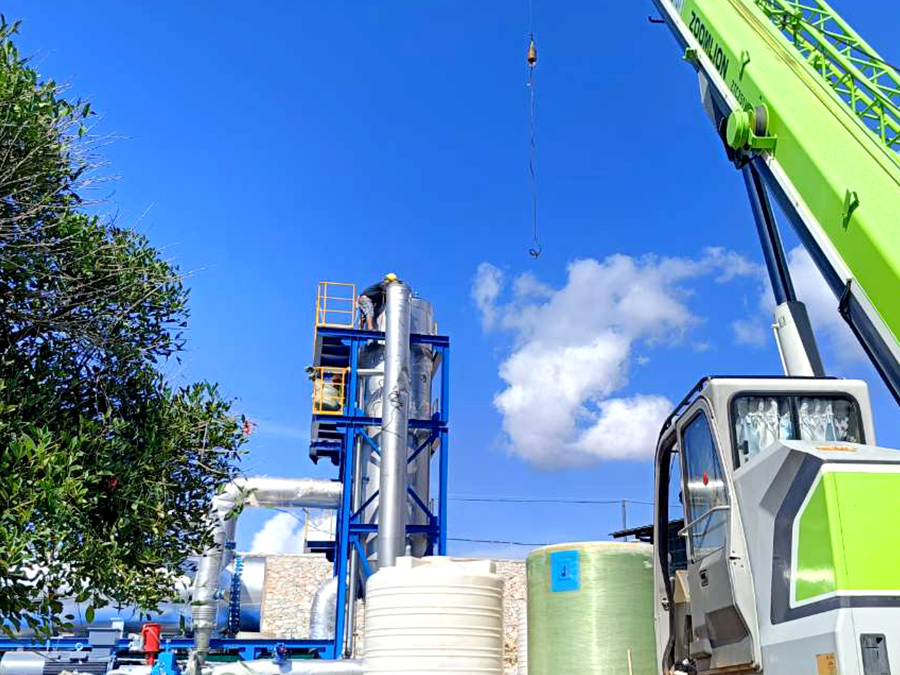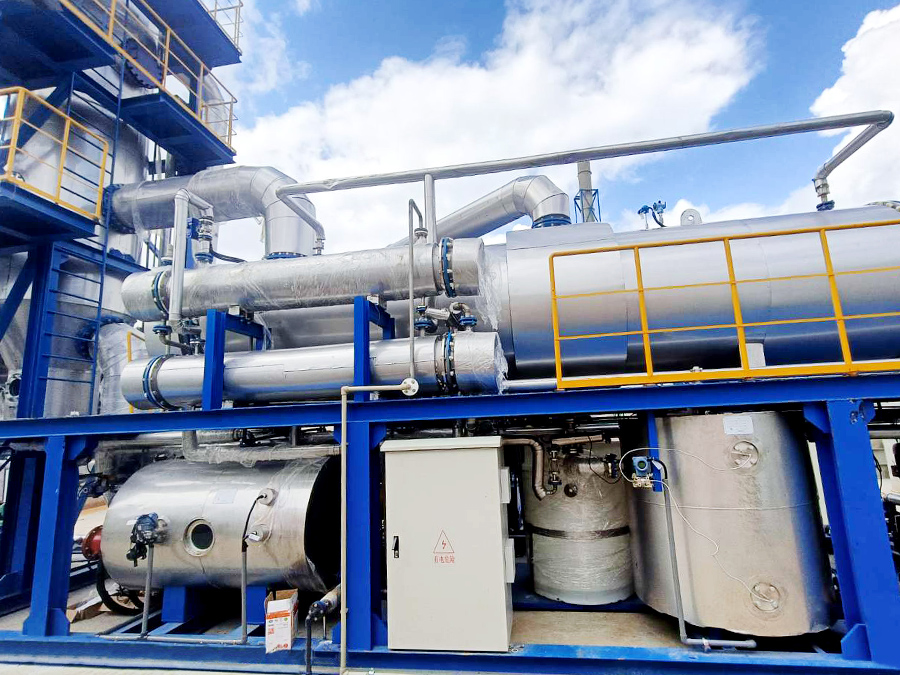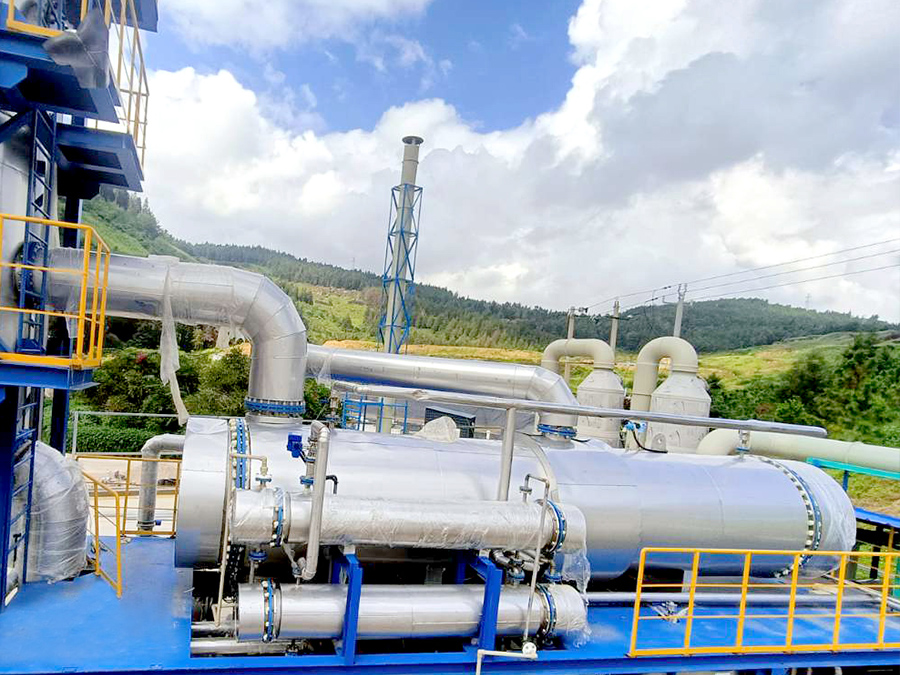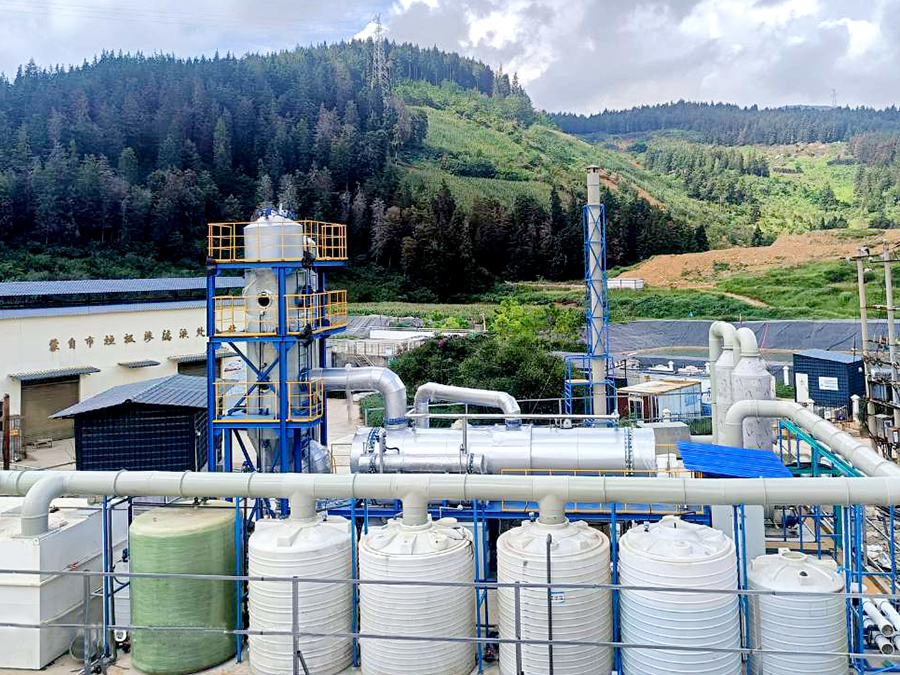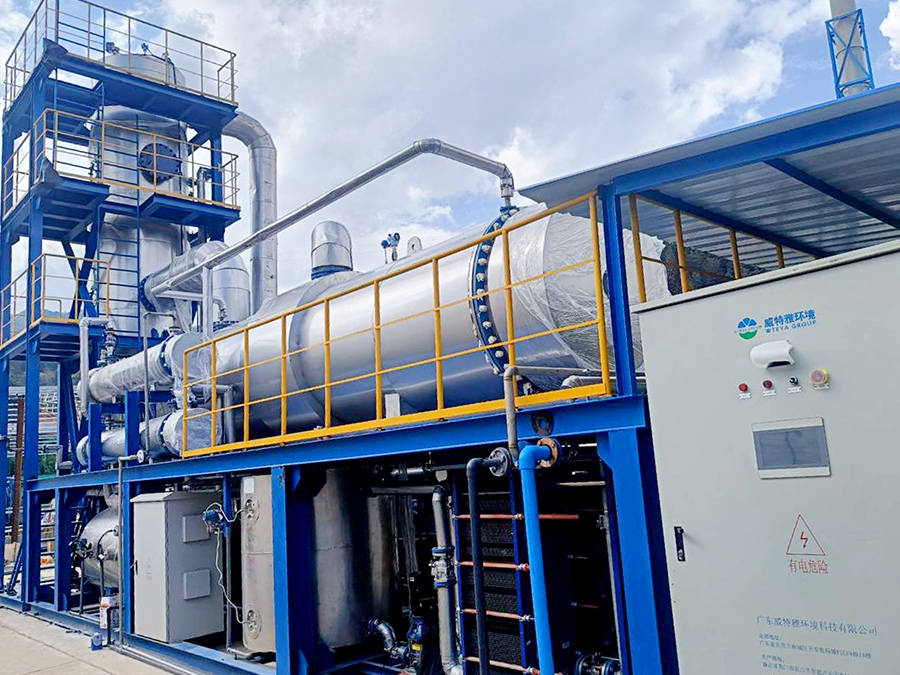MVR Evaporator Technology: Industrial Park Wastewater Treatment for Zero Discharge
As industrial parks face rising environmental regulations and corporate responsibility expectations, innovative solutions for wastewater treatment are more critical than ever. Mechanical Vapor Recompression (MVR) evaporator technology is one of the most efficient methods for industrial wastewater treatment, particularly when aiming for zero discharge. This guide delves into the core benefits of MVR evaporator technology, explores its applications, highlights its unique design features, and reveals its significant value to industrial wastewater treatment facilities.
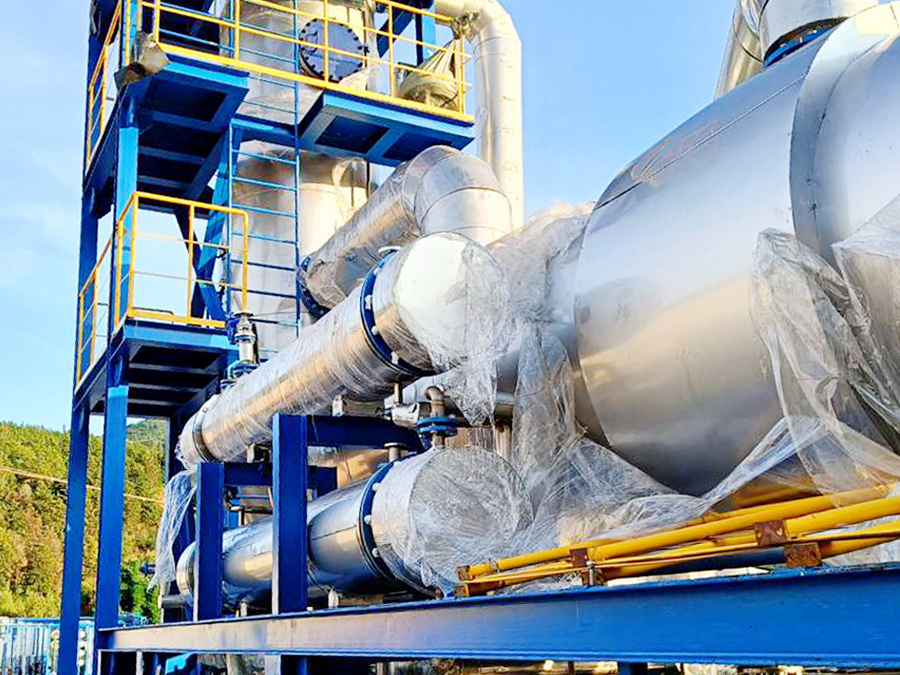
Key Selling Points of MVR Evaporator Technology
Achieving Zero Liquid Discharge (ZLD): MVR evaporators are engineered to ensure that all wastewater is either recycled or reduced to dry solids, achieving zero liquid discharge (ZLD). This outcome is essential for industries committed to sustainable operations and environmental compliance.
High Efficiency and Cost-Effectiveness: By compressing and reusing vapor, MVR evaporators significantly reduce energy consumption. This process provides an energy-efficient solution that decreases operational costs while maximizing productivity.
Adaptability to Diverse Industrial Wastewater Types: MVR technology can handle a wide range of wastewater compositions, from high-salinity solutions to complex chemical mixtures, making it suitable for diverse industries with varying wastewater profiles.
Minimal Environmental Impact: The closed-loop design of MVR evaporators minimizes environmental pollution by eliminating hazardous discharge and reducing the carbon footprint associated with traditional wastewater treatment methods.
Compact, Scalable Design: MVR evaporators are designed to be compact and modular, making them ideal for facilities with limited space. The technology is also easily scalable, adapting to the evolving needs of industrial parks and facilities of various sizes.
Addressing Common Wastewater Treatment Challenges
Reducing Water Disposal Costs: Industrial parks face high disposal costs due to the large volume of daily wastewater. MVR evaporators reduce wastewater volumes dramatically, transforming them into purified water and solid byproducts, effectively lowering disposal expenses.
Meeting Stringent Regulatory Standards: As regulations for industrial wastewater become more stringent, many companies face challenges in maintaining compliance. MVR evaporators offer a reliable way to meet regulatory requirements, particularly in achieving zero discharge mandates.
Managing High-Salinity and Complex Wastewater: Many industries produce wastewater with high salinity levels, which is difficult to treat using conventional methods. MVR technology excels in treating such wastewater, purifying it, and turning complex, high-salinity wastewater into reusable water.
Minimizing Energy Consumption and Operational Costs: Traditional wastewater treatment processes are energy-intensive, increasing operational costs. The MVR process recycles heat, reducing energy needs by up to 80% compared to conventional evaporation methods, thus significantly lowering expenses.
Improving Water Reuse and Sustainability: With water scarcity concerns on the rise, industries are focusing on maximizing water reuse. MVR evaporators produce high-quality distilled water that can be reused in industrial processes, supporting sustainable water management practices.
Applications of MVR Evaporator Technology
Chemical and Petrochemical Industry: MVR technology is widely used in chemical plants and refineries where complex wastewater is produced. It removes contaminants effectively, allowing water to be recycled back into the system or safely disposed of.
Textile and Dyeing Industry: The textile industry generates large volumes of wastewater containing dyes, salts, and chemicals. MVR evaporators treat this wastewater, removing pollutants and enabling water recovery for reuse in production processes.
Pharmaceutical Manufacturing: In pharmaceutical production, wastewater often contains harmful contaminants that require advanced treatment. MVR evaporators enable pharmaceutical companies to achieve zero discharge while recovering valuable compounds from waste streams.
Food and Beverage Industry: Food processing plants generate high loads of organic wastewater. MVR evaporators reduce wastewater volumes, allowing purified water to be reused and organic byproducts to be safely disposed of or repurposed.
Power Generation and Mining: Power plants and mining operations produce highly saline wastewater that is challenging to treat. MVR evaporators handle these wastewater types efficiently, producing high-quality distilled water suitable for reuse.
Electronics and Semiconductor Manufacturing: The electronics industry requires ultra-pure water for its processes, and MVR evaporators ensure effective water purification and reuse, supporting sustainable manufacturing practices in high-tech environments.
Advantages of MVR Evaporator Technology
Superior Energy Efficiency: MVR evaporators use a fraction of the energy consumed by conventional thermal evaporation, making them highly efficient. By recycling vapor heat, they achieve substantial energy savings, which translates to lower operational costs and a smaller carbon footprint.
Reduced Operational and Maintenance Costs: Due to fewer moving parts and robust construction, MVR systems have lower maintenance requirements. This longevity reduces the frequency of repairs and downtime, providing a cost-effective solution for continuous wastewater treatment.
High Water Recovery Rates: The MVR process provides high water recovery rates, ensuring that a significant portion of wastewater can be reused, supporting sustainable operations, and minimizing water procurement costs.
Low Emissions and Reduced Environmental Impact: MVR evaporators operate within a closed-loop system, which minimizes emissions of pollutants and reduces the environmental impact associated with industrial wastewater treatment.
Customizable and Scalable: MVR evaporators are designed to be adaptable to different volumes and types of wastewater, making them suitable for various industries. They can be scaled up or down depending on the facility’s wastewater treatment needs, offering flexibility for expanding operations.
Long-Term Reliability and Durability: Built with high-quality materials, MVR evaporators are designed for durability and reliability. They are well-suited for harsh industrial environments, ensuring continuous operation and high performance over the long term.
Unique Design Features of MVR Evaporator Technology
Efficient Vapor Recompression System: MVR technology relies on a mechanical recompression process that condenses vapor back into liquid. This process drastically reduces the need for external heating, increasing energy efficiency and making it one of the most cost-effective evaporation methods available.
Integrated Heat Exchanger: The built-in heat exchanger captures and recycles heat from the compressed vapor, which is reused within the system. This recycling process minimizes energy waste, resulting in high thermal efficiency.
Compact and Modular Design: MVR evaporators are built with a compact, modular layout that conserves space in industrial facilities. This modularity allows for easy expansion, enabling companies to scale their wastewater treatment capacity without needing extensive restructuring.
Automated Control Systems: Equipped with advanced automation and control systems, MVR evaporators require minimal manual intervention. Operators can monitor and control the process remotely, reducing labor costs and improving operational efficiency.
Corrosion-Resistant Construction: Constructed from corrosion-resistant materials, MVR evaporators can handle aggressive chemicals and high-salinity wastewater, ensuring longevity and optimal performance in harsh conditions.
Self-Cleaning Mechanisms: To minimize fouling and scaling, many MVR evaporators incorporate self-cleaning mechanisms that maintain internal components and ensure uninterrupted operation. This feature further reduces maintenance requirements and downtime.
The Value of MVR Evaporator Technology for Industrial Wastewater Treatment
Cost Savings Through Reduced Disposal Needs: By drastically reducing the volume of wastewater that requires disposal, MVR evaporators cut disposal costs, translating into substantial savings over time. The high water recovery rates allow for maximum reuse, minimizing the need for additional water purchases.
Supporting Sustainable Industrial Practices: MVR evaporator technology aligns with corporate sustainability goals by reducing water waste, energy consumption, and emissions. Companies can leverage MVR systems to demonstrate environmental responsibility and meet global sustainability standards.
Improved Regulatory Compliance: With increasing environmental regulations on industrial wastewater disposal, companies face growing pressure to achieve zero discharge. MVR technology makes compliance straightforward, ensuring that facilities can meet or exceed regulatory requirements.
Enhanced Reputation and Corporate Responsibility: Adopting MVR evaporator technology showcases a company’s commitment to environmental sustainability and water conservation. This commitment improves brand reputation, attracting customers and partners who value environmentally conscious businesses.
Future-Proof Solution for Growing Industries: As industrial operations expand, wastewater treatment needs also grow. MVR evaporators offer a scalable solution that supports future expansion, enabling facilities to handle increased wastewater volumes without significant infrastructure changes.
Maximized Resource Recovery: In addition to water recovery, MVR evaporators can recover valuable byproducts from the wastewater stream, adding revenue sources and offsetting treatment costs. This value recovery makes MVR systems an economically attractive solution.
Top Brands for MVR Evaporator Technology
GEA Group: Known for its innovative engineering, GEA provides MVR systems that are energy-efficient and customizable for various industrial applications. Their systems offer reliability and long-lasting performance in challenging environments.
Veolia Water Technologies: Veolia offers a range of MVR solutions designed to handle diverse wastewater compositions. With advanced automation and energy-saving technology, Veolia’s MVR evaporators are suitable for industrial parks aiming to achieve zero discharge.
SPX Flow: SPX Flow manufactures durable and efficient MVR systems, featuring robust construction and advanced heat recovery. Their equipment is ideal for high-demand industrial applications requiring consistent performance.
Alfa Laval: Alfa Laval’s MVR evaporators emphasize efficiency and durability, with specialized designs tailored to high-salinity wastewater. Their systems are widely used in the chemical, food, and textile industries.
ANDRITZ Group: ANDRITZ’s MVR evaporator solutions focus on high water recovery and zero liquid discharge, featuring modular and compact designs suited to industries like mining, energy, and electronics.
Conclusion: MVR Evaporators as the Future of Industrial Wastewater Treatment
With their energy efficiency, cost-effectiveness, and environmental benefits, MVR evaporators represent the future of industrial wastewater treatment. They not only support zero liquid discharge goals but also provide a versatile, sustainable solution for industries seeking to comply with regulations and reduce environmental impact. By adopting MVR evaporator technology, industrial parks, and facilities gain a robust, long-term solution for effective wastewater management that supports sustainable growth.








